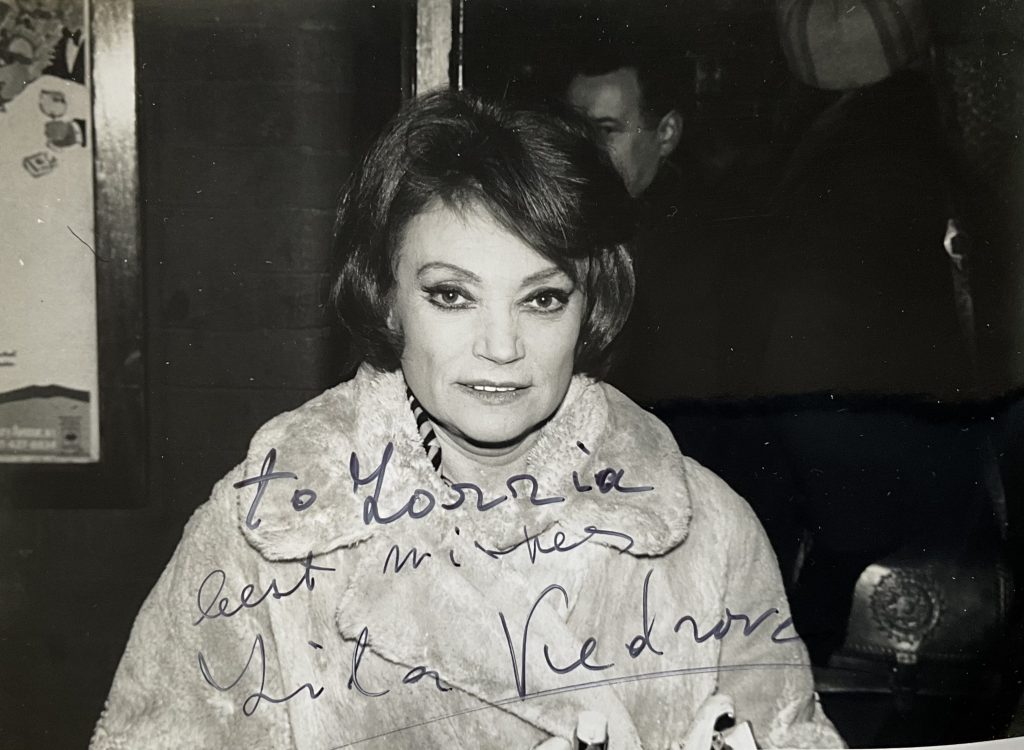
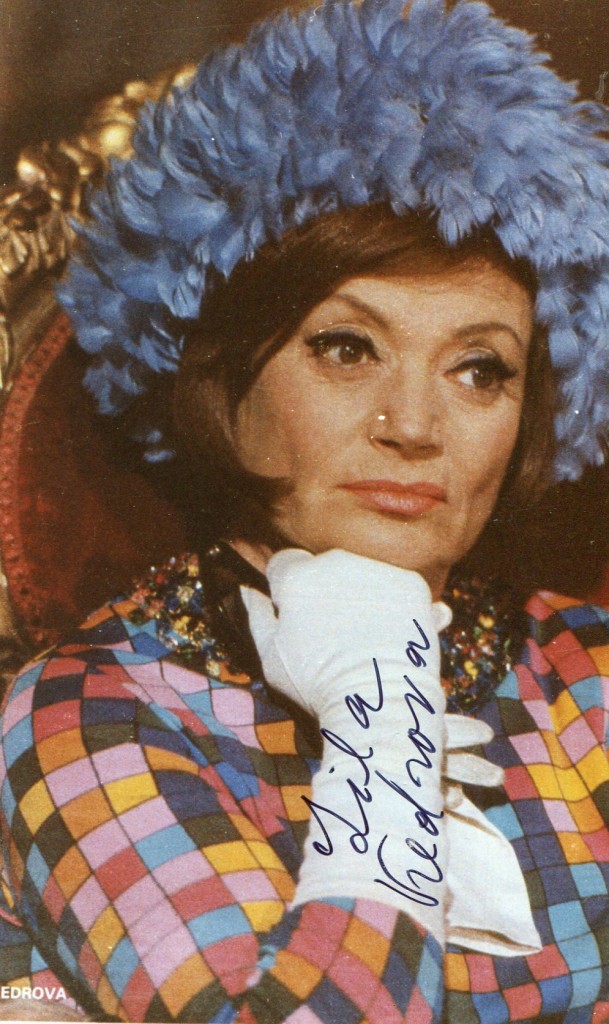
Lila Kedrova was born in Russia in 1918. She joined the Moscow Art Theatre in 1932. She made many French films in the 1950’s and in 1964 she replaced Simone Signoret in “Zorba the Greek” with Anthony Quinn. She won an Academy Award for her performance. She went on to make “Torn Curtain” with Paul Newman and Julie Andrews directed by Alfred Hitchcock. She won critial acclaim in 1980 for her performance with Melvyn Douglas in “Tell Me A Riddle”. She died in Ontario, Canada in 2000 at the age of 81.
Her “Guardian” obituary:
Lila Kedrova was rumoured to be 80 when she died – she had chosen her own birth date when all paper evidence was abandoned as her family fled Russia after the Revolution: she liked to say that this allowed her to be any age she wanted. And her preferred age was 16, the age of the soubrette.
That was her gift: she played tragic soubrettes, foolish but not silly young women aged 38 and 66 and 71, still willing to believe that romance will blossom even as they recount, broken-voiced, how romance has failed them in the past.
Kedrova was 45 when director Michael Cacoyannis phoned from Crete to invite her to take over the role of Mme Hortense in Zorba the Greek, after Simone Signoret walked out on him a week into shooting. His Hollywood producers advised him to buy the biggest replacement name around, but he knew that Kedrova – whom he called Little Monster for her persistence – had yearned for the role, even though she was 20 years too young to be the consumptive whore.
He asked in French if she could speak English. “Oui,” she lied, flew forthwith from Paris to Crete, caught flu, hid in bed and learned her lines for the first scene. The whole crew, protective of her, coached her: in snagged crochet gloves, she gave the truest performance in that phoney film: her Hortense abandoned herself as totally as an adolescent to hope. Sentiment made her brave. She won an Oscar.
In 1984, by which time she was the right age and rather more – “smeary-faced, shimmery, out of a Toulouse-Lautrec canvas” wrote Frank Rich – she won a Tony for Hortense again, once more opposite Anthony Quinn, in the Broadway musical version.
Lila, short for Elizabeth, was born in whatever was the Russian equivalent of a theatre trunk. Her father was a singer, director of the Kedroff Quartet, her mother in the Petrograd Opera. Lila Kedrova studied piano (encouraged by Shostakovich, for whom she claimed she turned pages of score), her education broken by the family flight first to Germany, then Paris – at the beginning of the Stalin terror, a stranger on the street told her father he was on the list to be purged.
The Kedroffs were Bohemian refugees; Lila went barefoot; Lila was acquainted with Stravinsky and Prokofiev; Lila ran off with the gypsies and pretended to be an orphan to join the circus, pulling a “big, old, friendly” bear around the ring on a chain.
At 14, she joined the emigré Moscow Arts Theatre, a Stanislavsky-style touring company; learnt discipline singing in cafe-concert, (“Quick-quick, I change dress, make up, all”); and studied at drama school under actor-director Pierre Valide, whom she married.
Her “Guardian” obituary can also be accessed online here.
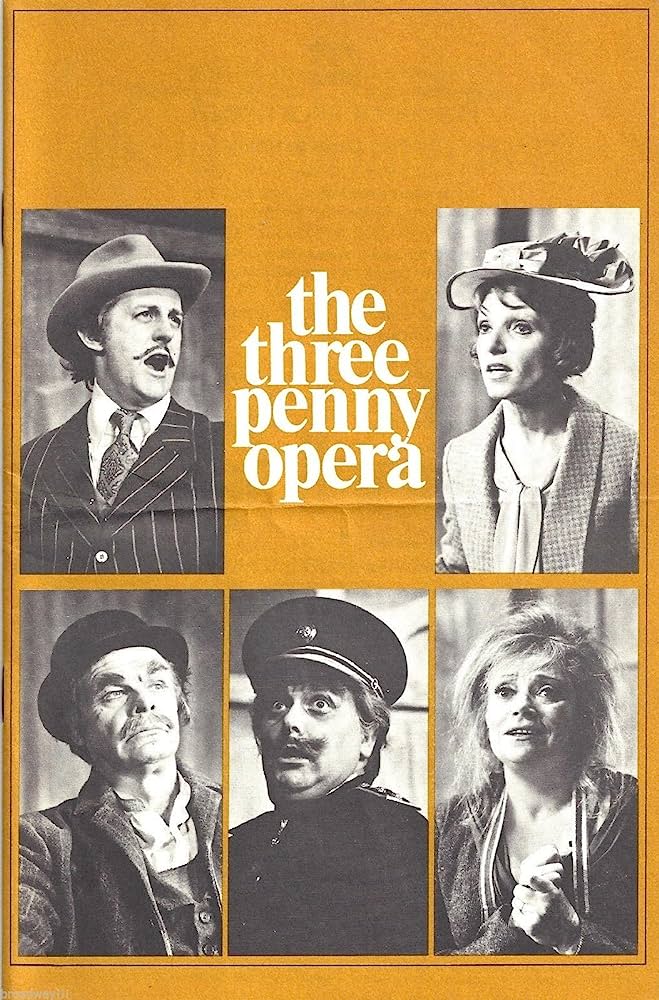
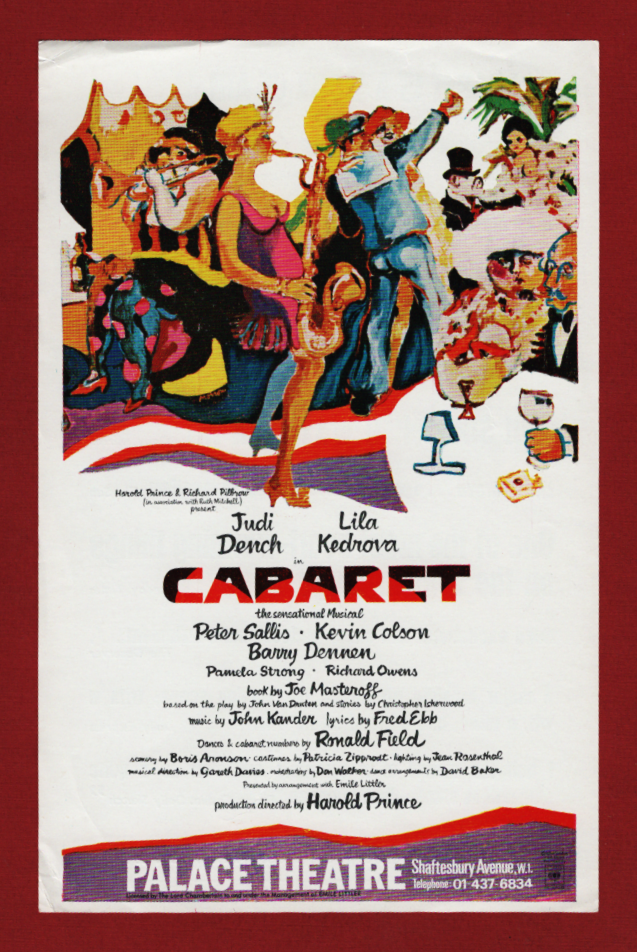
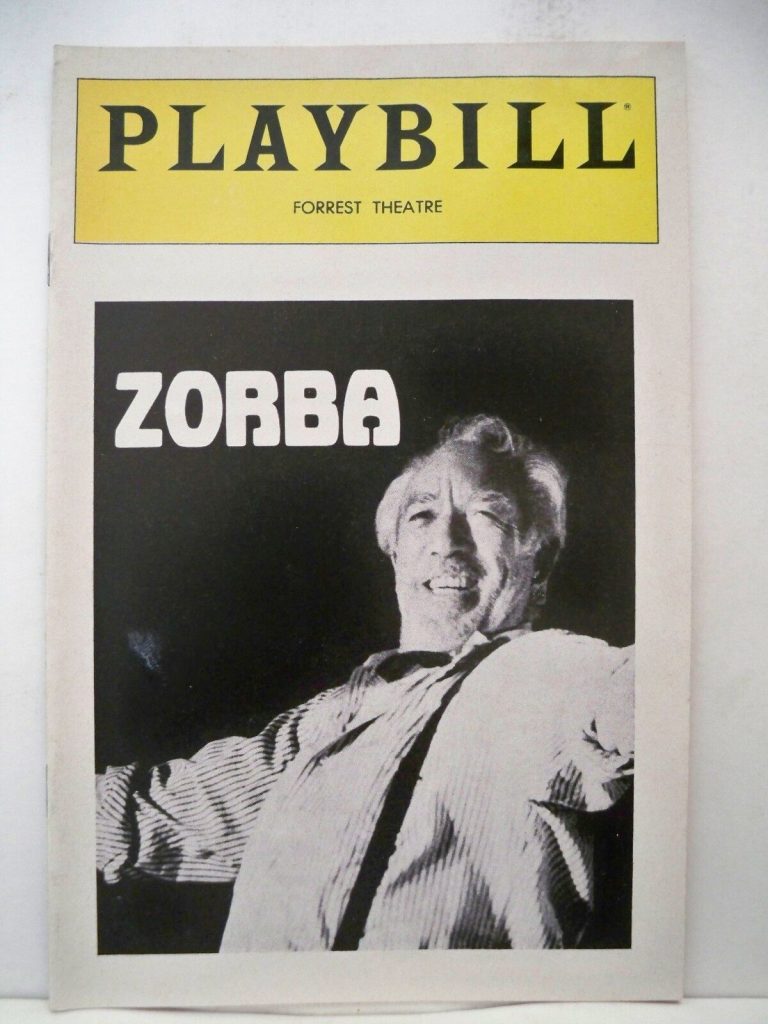
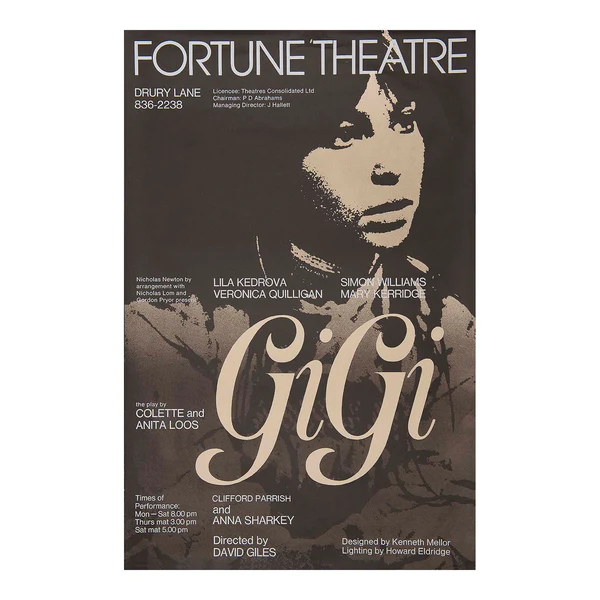
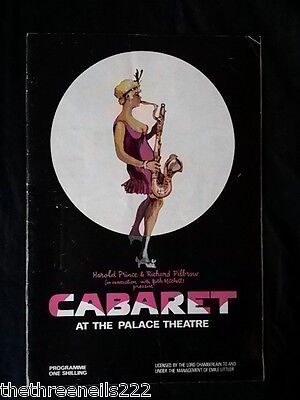
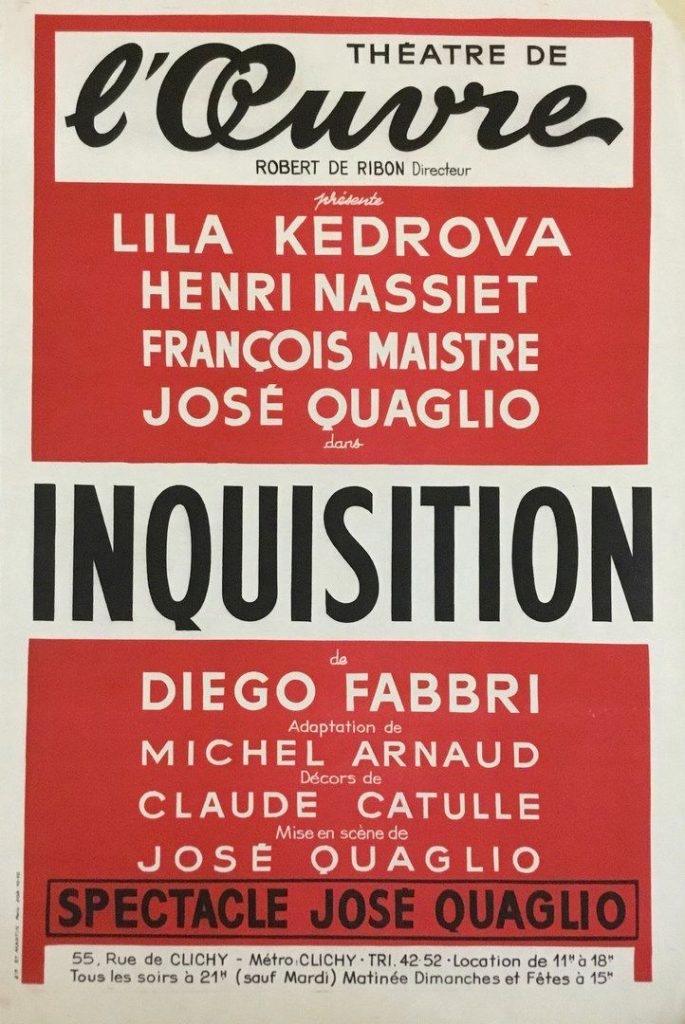

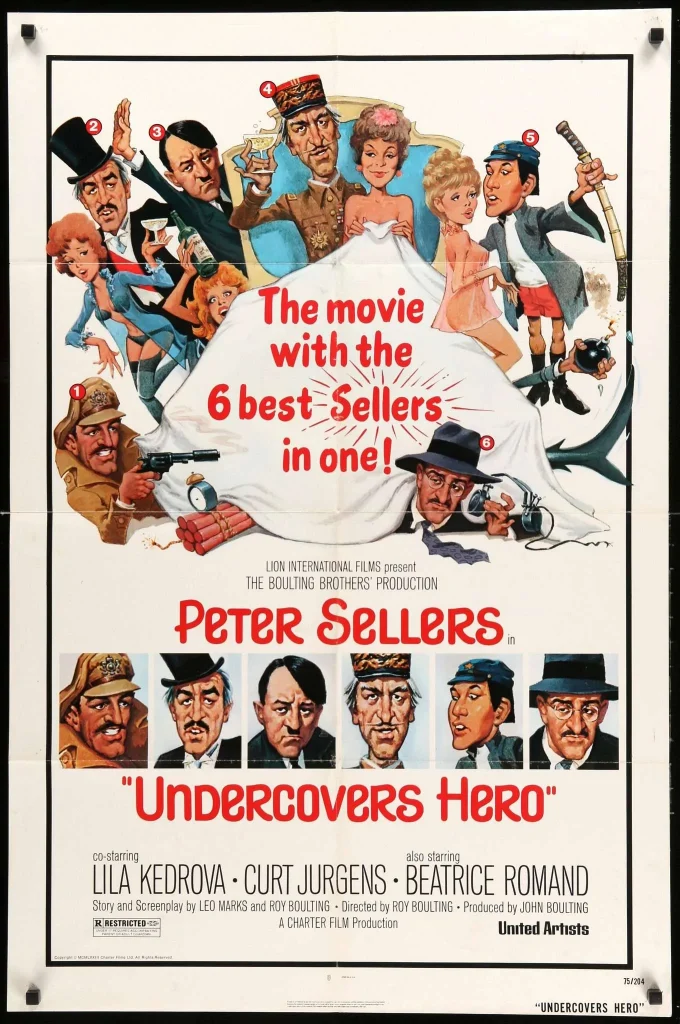
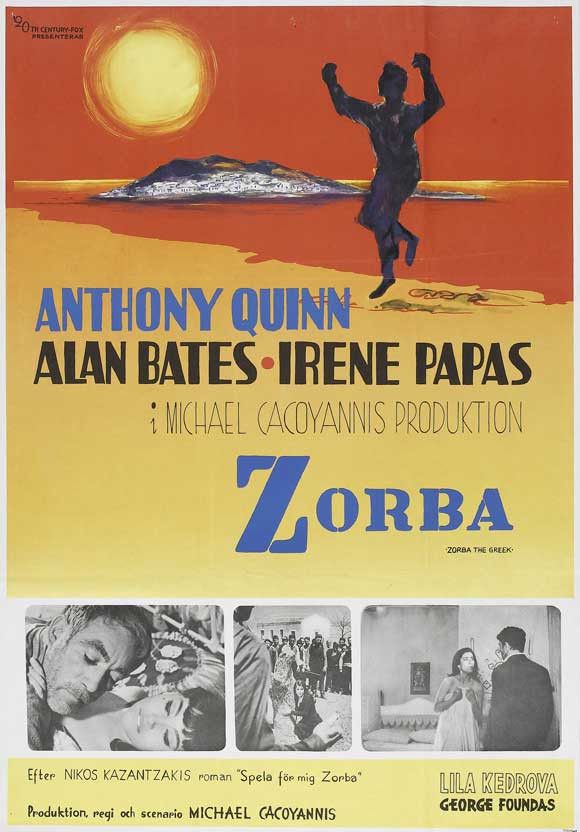
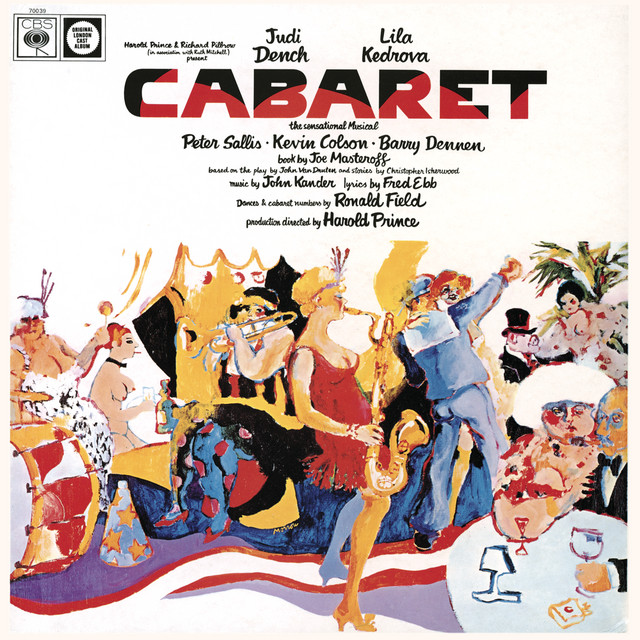
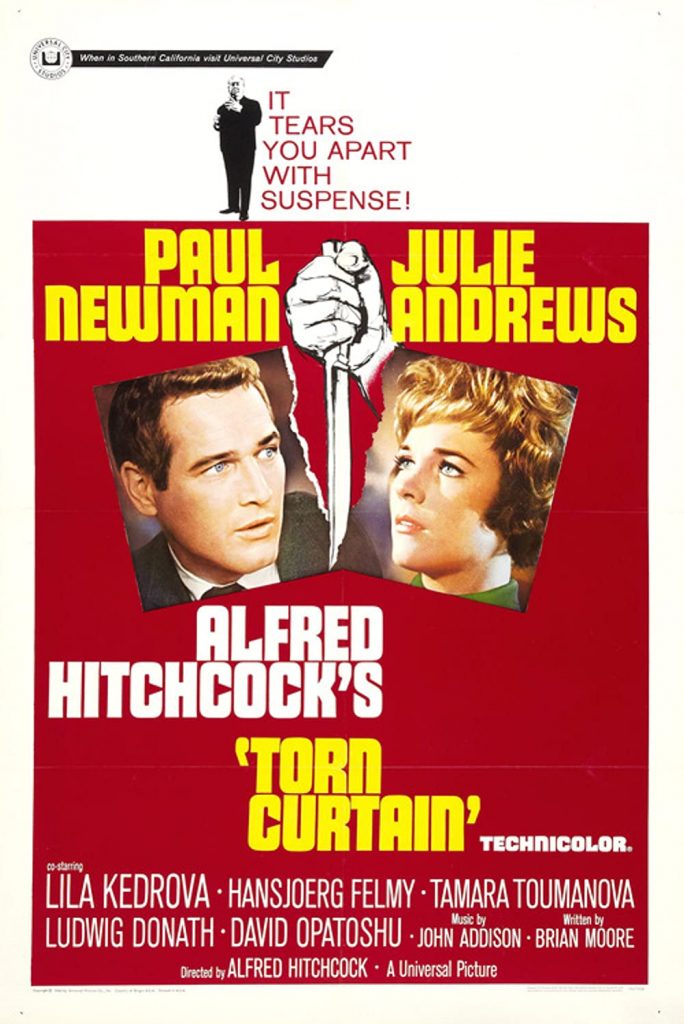
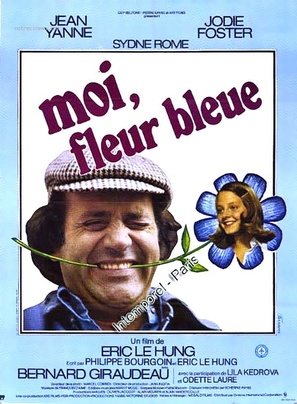
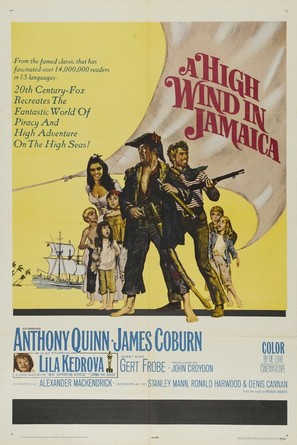
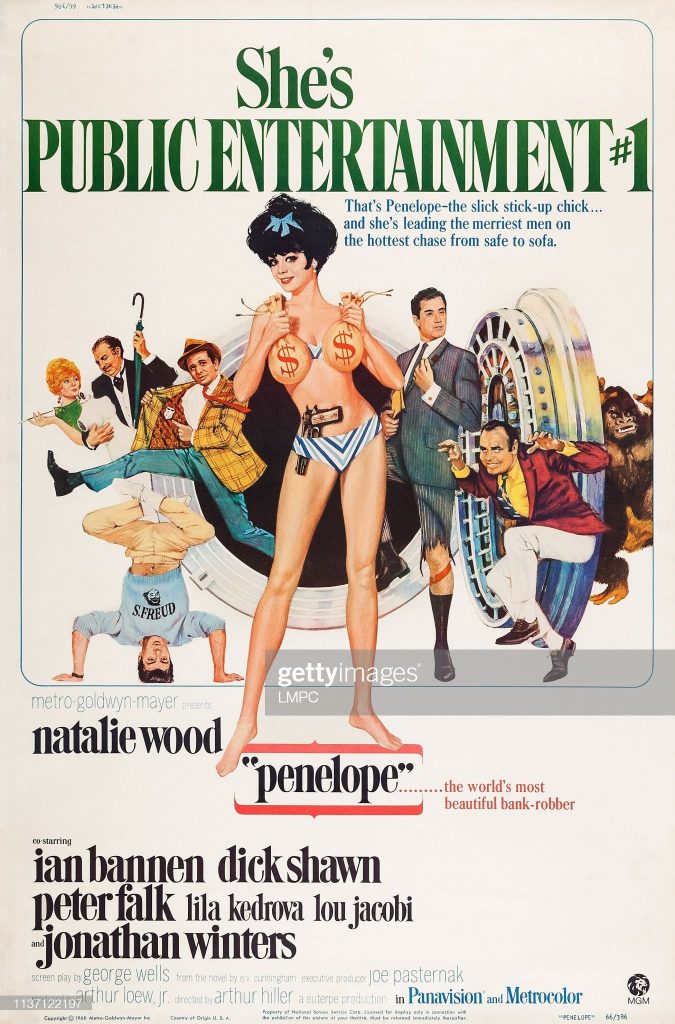
In the 50s, he directed her initial stage successes, including The Rose Tattoo. She was in A View from The Bridge, A Taste of Honey, and a drug addict in Razzia sur la Chnouf, for which she won the French critics’ best performance award in 1955, when it was made into a film.
She reluctantly took roles in European and Hollywood films – including Hitchcock’s Torn Curtain, and A High Wind in Jamaica – but hated to leave the stage even for a holiday. After Zorba, she could have patented the character on the movie cameo role circuit of the time, but she did not: her best performance was in Polanski’s 1976 The Tenant.
Onstage, she took the part she had always been meant to play, Lyuba Ranevskaya in Chekhov’s The Cherry Orchard, in London in 1967: her Ranevskaya’s sense of loss at parting with the estate was overcome by excitement at rejoining her lover and frittering away the money in Paris. (During the production she had met her second husband, Canadian stage director Richard Howard.)
The next year, she was Frau Schroeder, Sally Bowles’s Berlin landlady in the London production of Cabaret, a widow romanced by a Jewish greengrocer: this time love did not make her brave. “What would you do?”, she half-growled, half whispered, and – parting pragmatically with hope – “It’ll all go on, if we’re here or not. So who cares. So what?” But when she played Gigi’s aunt at the Fortune in 1976, she seemed, for all the wisdom, younger than teenage Gigi; she was perfectly wistful as Madame Armfeld in A Little Night Music at Chichester in 1989.
Kedrova remained with Howard, based in Canada and Paris, until her death. She leaves no other family.
• Lila (Elizabeth) Kedrova, actress, born October 9 1919; died February 16 2000


